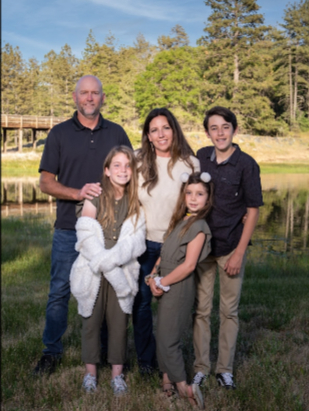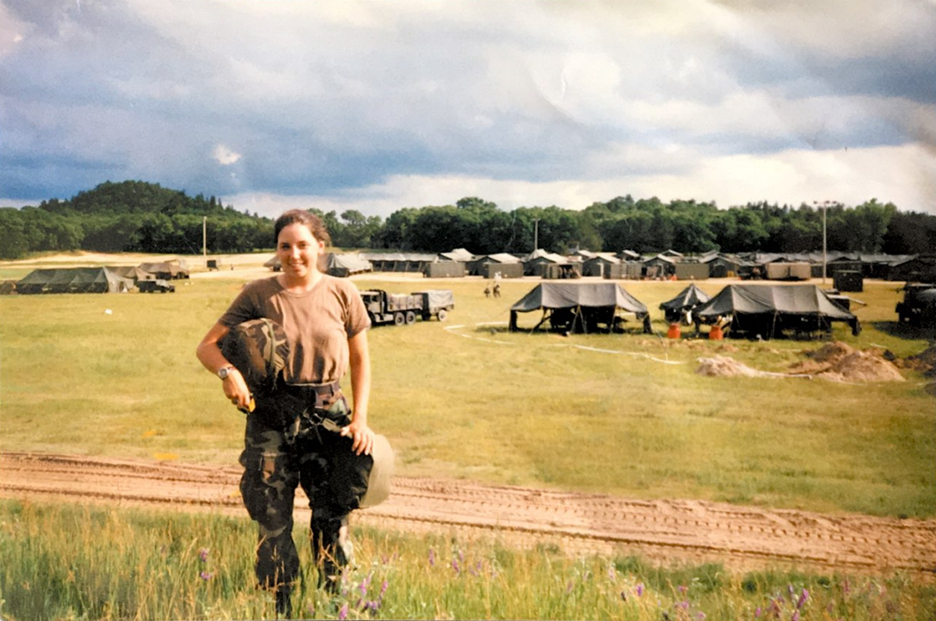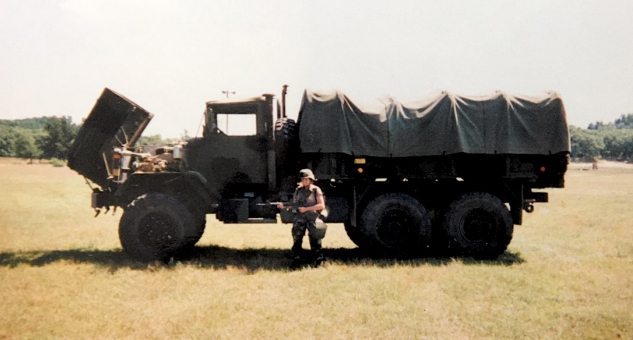
This Veterans Day, we salute our employees and others who have served in the Armed Forces. Amy VerBunker, HR generalist, discusses how serving our country in the U.S. Army Reserves, has shaped her life.
Q: Tell us about yourself and your role at Sempra Infrastructure.
I work as an HR generalist supporting Sempra Infrastructure leadership and employees in a variety of human resource functions such as career development, staffing, employee relations and compensation. Additionally, my team focuses on our HR Systems to deliver enhancements, metrics & reports. We also support and execute employee programs and training to teams and the business.
When not working, I chase three active kids to various activities. We enjoy being outdoors and exploring new places to climb, hike and bike. We also enjoy the theater and going to sporting events!
Q: What motivated you to join the military?

For many generations, my family has served in the military. My dad, many of my uncles and aunts, as well as both of my grandfathers have served. You could say it’s a family tradition stemming from an immense pride to serving our country. I am also a fan of challenges – I am motivated by them! Being a woman in a male-dominated industry, intense experiences and pushing myself mentally and physically, were all things that I looked forward to and saw as an adventure and a journey I shouldn’t miss out on.
In addition, joining the military provided me with the opportunity to help pay for college. I joined at 17 and elected a program which allowed me to begin school in the traditional timeframe. I am proud to say I am a first-generation college graduate and my time in the military helped me achieve this accomplishment.
Q: Where did you serve the majority of your time in service?

For six years, I served in the Army Reserves, which means I spent one weekend a month in training and for two weeks of the year our unit was deployed to a base to perform our mission as if we were being called to duty.
I worked for a combat support hospital unit, which means we would go to the field to erect and operate a fully functioning hospital within days. I also worked in the motor pool, where military vehicles were serviced and maintained. My job was to drive various vehicles that hauled soldiers, water, and/or equipment to destinations, load/unload, and set up equipment such as laundry and shower units. Most of the vehicles I drove had tires as tall as me.
Q: How would you describe your experience in the military?
It was just as I expected, an adventure and a journey.
You are pushed to the max mentally and physically, but you do it because it’s an order and a good cause. I look back and I can’t believe what I could do – how fast I could run, the types of truck I drove, and much more. My kids don’t even believe my stories.
I also learned so many skills that have helped throughout my life, and even now in my career at Sempra. I learned the importance of community, teamwork and being a team player – building a hospital that includes electricity, running water and operating rooms, in an empty field in only a few days, can only be accomplished with extreme team coordination and everyone doing their part.
I met and worked with people I admired – doctors, nurses, engineers and so many professionals. They really inspired me to pursue an education.
Q: What do you consider your biggest accomplishments and lessons?
Becoming a leader in the military was my biggest accomplishment. I had a mentor early in my time at the Reserves that believed I could make sergeant and I did. Making sergeant was one of the proudest days of my life. Yet it was followed by some loneliness and confusion, as some began questioning if I had made sergeant just because I was a woman, and my mentor was also a woman.
I worked hard to break that bias with my actions, being fair and working hard, to demonstrate that I had earned the right to be their leader and that my title/rank didn’t have anything to do with my gender.
Q: Which one of Sempra Infrastructure’s values, do the right thing, champion people and shape the future, do you relate to the most and why?
Being in human resources, I would instinctively say it is to champion people. Yet, my decisions to join the military, serve my country, strive to become sergeant and graduate college, have all been made with a desire to shape the future.